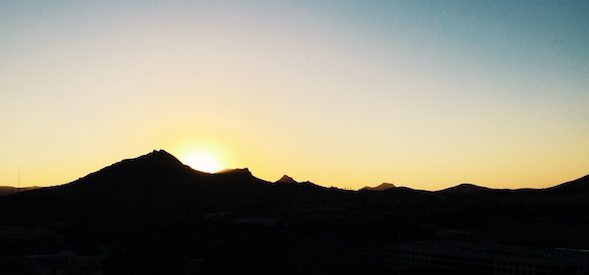As a highly-sensitive, introverted writer, I’ve been working on finding the best ways for me to engage with what’s happening here in the United States and rippling across the world. I’ve not historically been much of a political activist, but I’m finding that I want to be more active and informed than I have in the past.
And while I am taking action and staying informed (and refining how I take in information so I don’t feel overwhelmed, depressed, or overly distracted), what’s coming to me most clearly right now is that writing is my protest.
Here’s why.
- Artists are activists by being catalysts for change. One of my favorite artist archetypes (from a sci-fi story, of course) is Khendron, the jester from The City and the Stars by Arthur C. Clarke. Khendron’s very reason for being, as designed by the city’s creators, is to provoke and inspire thought, desire, and action in the minds of the periodically born “uniques” — people also purposefully designed by the creators to bring about change in an otherwise stagnant world-system. Like Khendron, we catalyze others into action with our observations of the world, expressed through our art and writing. We are critical players in our culture — influencers — bringing forth the truths we see in the world, and inspiring others to think and take action for positive change.
- Stories heal. We write, read, watch, and experience writing in all its forms for so many reasons. One key reason is recovery and healing: Stories help us escape and rejuvenate so we can do the work we were put here to do. And beyond pure escapism (highly valuable in stressful times), both stories and non-fiction books also help us heal misconceptions about ourselves and our world and change how we interact with everyone around us as a result. By way of a small example, I loved watching the movie About Time, for a new perspective on making the most of every moment we have. In a sense, this kind of healing and nurturing is a form of protest, because it strengthens us to carry on doing our work as artists, gives us energy to take action and stand up for what we believe in, and provides sanctuaries and safe havens for our readers to retreat to. We take care of the people on the front lines — and ourselves — when we write.
- Stories teach us who we are and what we’re capable of. In stories we can “try on” scenarios and find out what we might do in similar situations. Some fictional stories are allegorical, and show us ways we might navigate morally questionable situations. One of my favorite movies of all time is District 9, an incredible allegory for apartheid that offers an up-close and personal perspective on what it would feel like, from the inside-out, to be part of a racially shunned and segregated group. When we write fictionally and metaphorically about what’s happening in the world, we help each other understand what’s going on from other viewpoints. This allows to us to examine what actions we want to take in the real world as we mentally and emotionally journey through a story world, and feel empathy for people in situations we might not have firsthand experience with. One of the reasons for my passion for sci-fi is the incredible ability it offers to show us our own world through a more objective and yet also more personal lens. As writers, therefore, we protest when we write stories to show each other what’s really going on. We can do that figuratively, or literally (see #4, next).
- Writing educates. Beyond storytelling, writers have power to factually educate us about the world. We’ve seen writing and news that has been ill-used for the purpose of garnering higher ratings. We also see incredible levels of bias that are misleading and confusing. But we’re also seeing journalists striving to operate at higher levels of integrity and consciousness, who will help us collectively understand what’s happening right now in our world, possibly changing minds and hearts. Education is one of the most powerful ways to influence people to make new choices.
- “Joy can be a form of rebellion,” as Chuck Wendig wrote in a post recently called “Why Persist As a Writer In Times of Such Heinous F*ckery?” (Note that he labels his site as NSFW — “not safe for work” — he swears a lot so if that bothers you, avoid it.) That particular phrase, “Joy can be a form of rebellion,” stood out to me. Because when we refuse to be brought down by fear and persist in loving our lives, that is a form of protest. This notion helps me be strong in my resolve to stay connected to what matters most to me in my life — my writing and my family — no matter what’s happening around me.
- Writing helps us find meaning, even in the presence of suffering, fear, or doubt. I’m reminded of Viktor Frankl, author of Man’s Search for Meaning, who was able to find meaning in his life experience, even while held in Holocaust concentration camps where he lost his parents, wife, and brother. “The meaning of life is found in every moment of living; life never ceases to have meaning, even in suffering and death.” As a writer, the act of writing is an integral part of how I find and create meaning in my life. Although I have at times despaired over the many potential disasters that appear to be in the making and struggled to find the energy to write, I feel a sense of determination not to allow the discord, pain, and distraction in the world to take something so meaningful away from me. I won’t be stopped as a writer.
- Writing helps us remember who we are. When we lose our sense of selves, we become powerless. If we are writers, we must write, if only to preserve our sense of selfhood and identity. Writing becomes an act of self-preservation, which in turns becomes an act of protest, because it helps us stay in touch with our power. And when we are powerful, we can act, write, and inspire.
I’d love to hear your thoughts in the comments.









